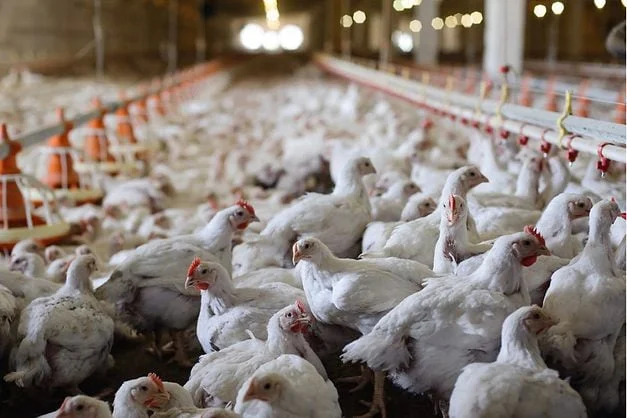The government of the United Kingdom has enacted comprehensive, new regulations to combat a surge in avian influenza cases.
An official order was announced on Tuesday, requiring that all poultry across England must be moved and contained indoors. This directive will be enforced starting Thursday.
Mandatory Housing Measures Extended
This latest ruling expands upon earlier, more limited restrictions. Those initial measures had been enforced in parts of eastern, central, and northern England last week.
The official government statement defined the wide scope of the new mandate:
“The new measures mean bird keepers across the whole of England must house all poultry and captive birds if they keep more than 50… or if they sell or give eggs away.”
UK Chief Veterinary Officer Christine Middlemiss justified the action. She noted the persistent rise in avian influenza infections detected in both wild and captive birds across the nation. Consequently, the government decided to implement the difficult yet necessary step of expanding mandatory housing rules nationwide.
Public Health Risk Remains Low
Despite the accelerating cases in bird populations, government officials assured citizens regarding food safety. The responsible department confirmed that the risk to human health remains minimal. Furthermore, they stressed that eggs and poultry are safe for consumption, provided they are “properly cooked.”
The virus is known to transmit via various means. These include contaminated food, water sources, saliva, and droppings. Current regulations in the UK prohibit the use of bird flu vaccinations for standard poultry, though exceptions exist for zoo animals.
European Outbreaks Mirror National Trend
The situation unfolding in England mirrors a wider issue across Europe. Data collected by a continent-wide animal health monitor shows a substantial increase in outbreaks.
Eighty-five avian flu outbreaks were recorded on European poultry farms between August 1 and late October. Six of those outbreaks were confirmed within Britain.
Following a previous spike in infections in January, the UK government enforced mandatory culling measures in England. Birds located within a three-kilometer radius of any confirmed case were ordered to be culled. This preventative action was supported by stricter hygiene protocols enforced across broader areas.






